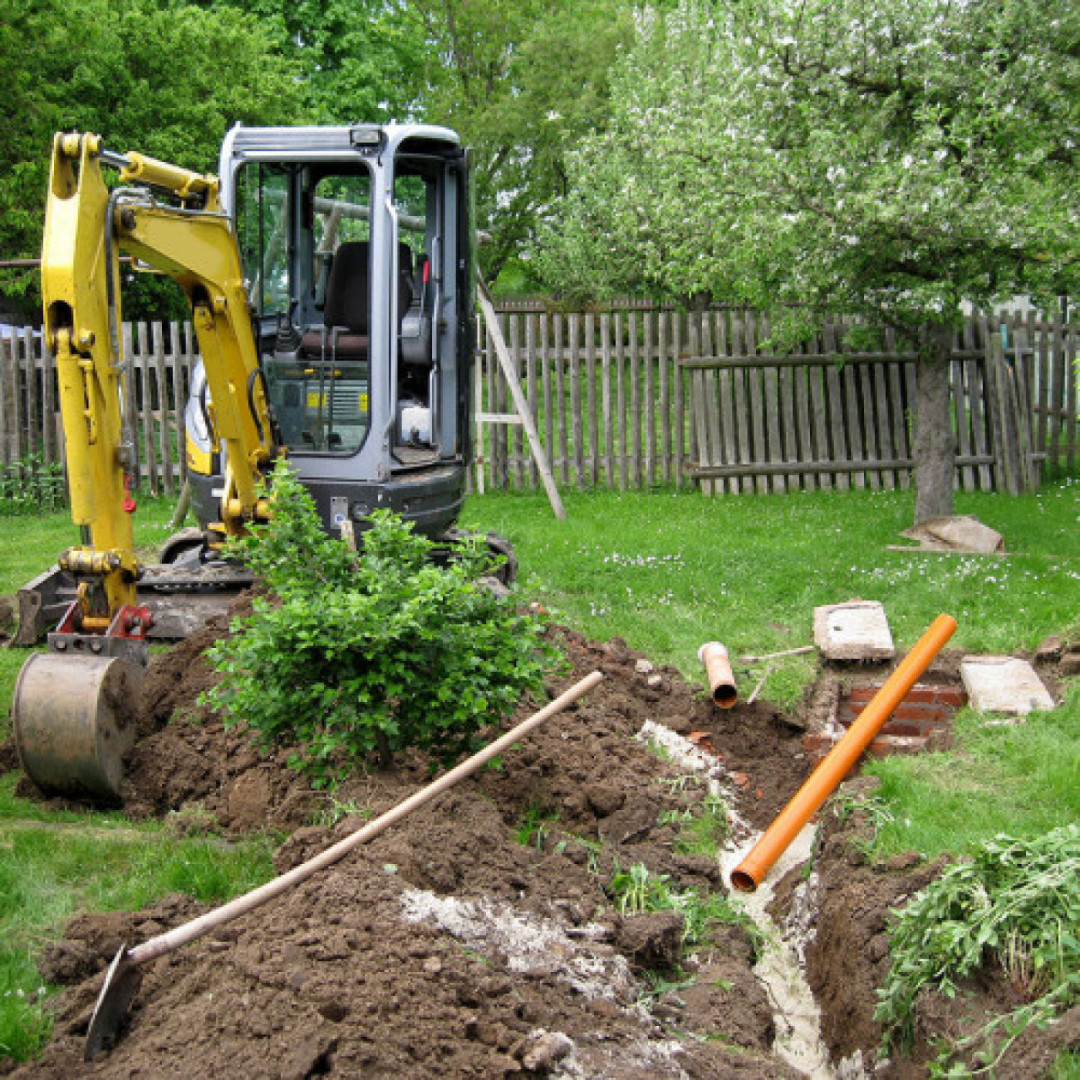Most of us don’t like to think about what happens after we flush the toilet. But when a sewage line breaks on your property, you come face to face with the hazardous septic waste you usually don’t think about. And the repair can cost anywhere from $5,000 up to $10,000 or more!
Most homeowners assume that maintaining and repairing the sewers is the responsibility of the city or other local authority. For the most part, that’s true. But what many homeowners don’t know is that anything on your side of the water meter is your responsibility. That means that a sewage line break under your front yard will probably not be covered by the city.
To make matters worse, it probably won’t be covered by your homeowners insurance either.
Homeowners insurance almost never extends beyond the footprint of your home’s foundation.
So homeowners insurance won’t cover a break in your front yard. It also typically doesn’t cover damage from normal wear and tear. So if your sewage pipe breaks due to age and normal wear, you’re out of luck.
If you have a broken sewage pipe on your property, the repair can be really expensive. That’s because the pipes are buried underground. Finding the leak requires specialized equipment. Many plumbers today use specialized video cameras that can get into your sewage lines and find the break. Once the break is located, the only way to fix it is to dig up the pipe and replace the broken section. All that specialized equipment and earthmoving adds up.
If you live in an older home for 15 years or more, there is a reasonable chance that you may run into a sewage line break.
Of course, many people live in homes for 30 years or more with no trouble. But it’s always a gamble. Many homes in Georgia are 30, 40, or even 50 years old or older. Their sewage lines were installed when the homes were built and have been aging ever since. Shifting and settling earth, spreading tree roots, and natural corrosion can all lead to sewage line failures.
But there is a way to protect yourself for just a few dollars a month.
Most homeowners insurance will not cover your sewer lines. But you can buy supplemental insurance that will. Sewage insurance is relatively cheap, often about $100 a year. But if your sewage line breaks or leaks, it could save you thousands.
So should you run out and purchase sewage insurance?
Whether you want to get sewage insurance or take a gamble that your sewage line will never break is up to you. But there are some circumstances that might make you lean towards buying the insurance.
- If your home is more than 30 years old, its sewage line is reaching an age where breaks are more common. The older your home, the higher your risk.
- Trees in your yard can affect your sewage lines. If you have large, older trees with spreading roots, your risk of a sewage line problem is higher.
- If a neighbor’s sewage line breaks, it’s a sign that your sewage line could be at risk, too. Nearby homes were probably built at the same time and with the same techniques and materials. They also face many of the same soil and other conditions. If your neighbor’s line broke, yours might be next.
Here at TrustDALE, we’ve seen a lot of heartache from homeowners who didn’t know they were responsible for their sewage lines or didn’t know they weren’t covered by homeowners insurance. When a line breaks, the only thing you can do is hire a reliable plumber (we have plenty here), and pay the full cost of the repairs.
While the choice to buy insurance is up to you, in this case Dale suggests you do it. It’s relatively cheap and could end up saving you a lot of trouble and a big hit to the pocketbook.


